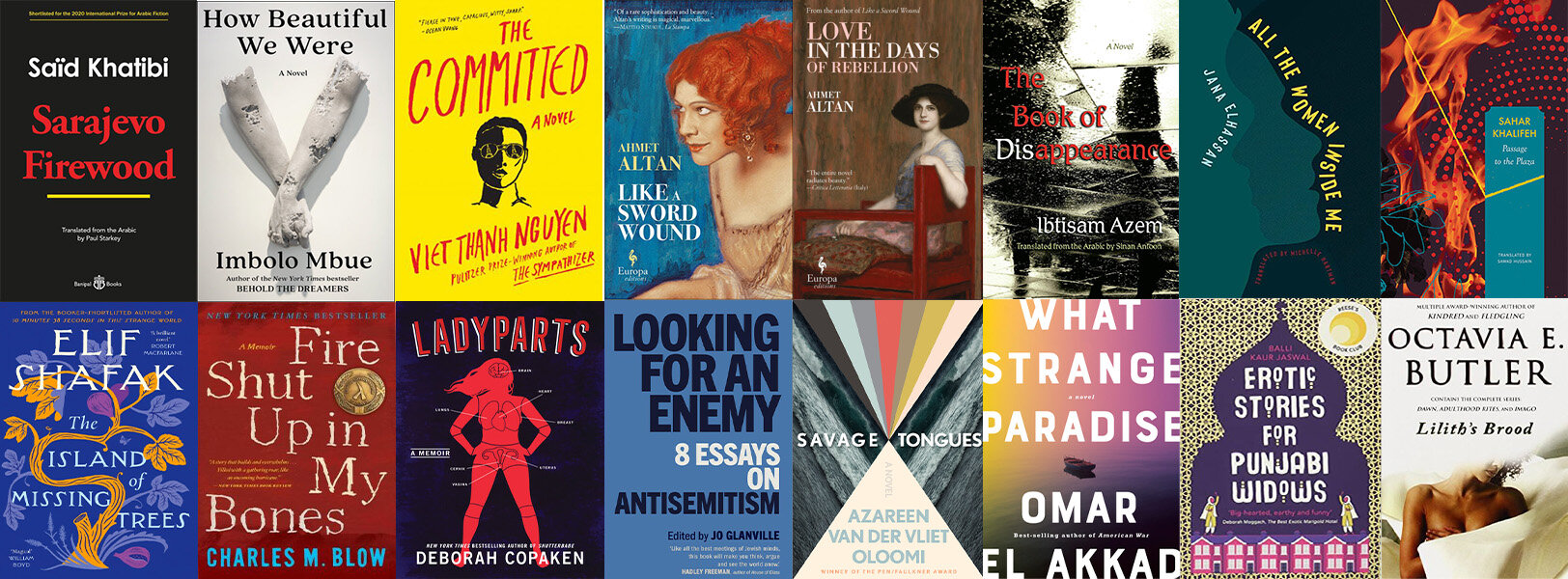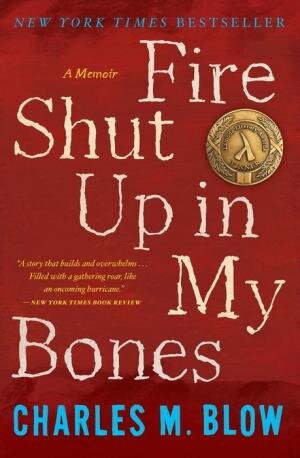
I read Sarajevo Firewood, the novel by Saïd Khatibi, translated by Paul Starkey (London: Banipal, 2021).
Saïd Khatibi’s courageous and extraordinary novel is a labyrinthine journey, with Algeria at one pole, Bosnia at the other, and Slovenia serving as neutral ground in-between. As the two narrators, Salim from Algiers and Ivana from Sarajevo, discover and are exposed to shocking knowledge of their respective family origins, we are taken on a journey within the journey. Along the way, we are forced to reconsider what we think we know about liberation, nationalism, decolonization, and war, as Khatibi masterfully shifts our focus from the state to the family and the continual trauma of self-understanding in the process of becoming an individual. The novel was shortlisted last year for the International Prize for Arabic Fiction.
—Ammiel Alcalay (Contributing Editor)
Written in a no-frills yet piercing prose style, Imbolo Mbue’s How Beautiful We Were is an account — tragic, wrenching, and at times exasperatingly documentary-like — of one village’s struggle against the avarice of an American oil company in a sub-Saharan country. The story of the village’s 40-year struggle, with its few ups and many downs, is related by several members of a single family, as well as a group of children turned adult revolutionaries that narrates in the first-person plural. (I reviewed the novel in the Boston Globe.)
I also read Viet Thanh Nguyen’s The Committed which is of course his sequel to the Pulitzer Prize-winning The Sympathizer. The Committed is thin on plot and more cerebral than its predecessor, with the author apparently heedless of the pitfalls of having his erudite protagonist/narrator expatiate upon anti-colonial theory as propounded by the likes of Fanon and Césaire. Yet in a carefully wrought and incremental development, that protagonist’s perception of himself as the consummate “sympathizer” emerges as more apt here than it did in the first book. Although he increasingly sees the faults underlying the ideological constructs towering over both sides of the Vietnam divide, he feels for those of his compatriots propping up either edifice. Oftentimes, the Sympathizer views himself as “a man of two faces and two minds.” (Here’s my review in PopMatters).
—Rayyan Al-Shawaf (Critic-at-Large)
I’ve been reading two novels from Ahmet Altan’s Ottoman Quartet, Like a Sword Wound, the first in the series, published in 2018, and Love in the Days of Rebellion, the second, published in 2020. Both are translated from the Turkish by Brendan Freely & Yelda Türed. They are exquisite. A controversial figure for some in Turkey, Altan is a novelist and journalist who has been in and out of Erdogan’s prisons for several years.
I’ve also read and recommend The Book of Disappearance by Ibtisam Azem, translated by Sinan Antoon (Syracuse University Press, 2019) and the novel All the Women Inside Me by Jana Elhassan, translated by Michelle Hartman (Interlink Books, 2021). Rounding out my list is Passage to the Plaza by Sahar Khalifeh, translated by Sawad Hussain (Seagull Books, 2020).
—Rana Asfour (Book Editor)
I’m very much looking forward to reading Elif Shafak’s The Island of Missing Trees, which is due out in August. Set on the island of Cyprus in 1974 and then decades later in London, the characters are Greek and Turkish, Christian and Muslim.
Margaret Atwood tweeted: “Lovely heartbreaker of a novel centered on dark secrets of civil wars & evils of extremism: Cyprus, star-crossed lovers, killed beloveds, damaged kids. Uprootings. (One narrator is a fig tree!)”
Elif Shafak is the Turkish-British author of several celebrated novels, including The Bastard of Istanbul, The Forty Rules of Love and 10 Minutes 38 Seconds in this Strange World.
—Melissa Chemam (Contributing Editor)

This summer I’ve been diving into memoirs, including Charles M. Blow’s Fire Shut Up in My Bones. I had read that Blow had been compared with James Baldwin and after last summer’s George Floyd marches, which were the largest seen in the US for years, this book seemed timely — it’s not a new title but one that holds up. Here’s what Alice Walker says about it: “Some truths cannot be taught, only learned through stories — profoundly personal and startlingly honest accounts that open not only our eyes but also our hearts to painful and complicated social realities. Charles Blow’s memoir tells these kinds of truths. No one who reads this book will be able to forget it. It lays bare in so many ways what is beautiful, cruel, hopeful and despairing about race, gender, class and sexuality in the American South and our nation as a whole. This book is more than a personal triumph; it is a true gift to us all.”
I’m also about to read Ladyparts, the new memoir by Deborah Copaken. Here’s what the publisher’s blurb reveals: “Ladyparts is her irreverent inventory of both the female body and the body politic of womanhood in America, the story of one woman brought to her knees by the one-two-twelve punch of divorce, solo motherhood, healthcare Frogger, unaffordable childcare, shady landlords, her father’s death, college tuitions, sexual harassment, corporate indifference, ageism, sexism, and plain old bad luck. Plus seven serious illnesses, one atop the other, which provide the book’s narrative skeleton: vagina, uterus, breast, heart, cervix, brain, and lungs. She bounces back from each bum body part, finds workarounds for every setback — she transforms her home into a commune to pay rent; sells her soul for health insurance; turns FBI informant when her sexual harasser is nominated to the White House — but in her slippery struggle to survive a steep plunge off the middle-class ladder, she is suddenly awoken to what it means to have no safety net.
Side-splittingly funny one minute, a freak horror show the next, quintessentially American, Ladyparts is an era-defining memoir for our time.”
—Monique El-Faizy (Contributing Editor)
Let’s see, I’m about to finish Jo Glanville’s new book, Looking for An Enemy, 8 Essays on Antisemitism (yes, anti-Jewish racism is still alive and kicking, I’m afraid). I’m also about to start the new novel from Azareen Van der Vliet Oloomi, who became a destination on the literary map with her 2018 critical sensation, Call Me Zebra (which won the 2019 Pen/Faulkner Award). Both the new novel, Savage Tongues, and Zebra feature Iranian refugees and locales in Spain, but in Savage Tongues there is also an Israeli American scholar who is committed to the Palestinian cause and an older Lebanese lover. The press release from Houghton Mifflin Harcourt suggests the novel is “equal parts Marguerite Duras and Shirley Jackson, Rachel Cusk and Samantha Schweblin” and “is a compulsive, unsettling, and bravely observed exploration of violence and eroticism, haunting and healing, and the profound intimacy born of the deepest pain.” So not for the faint of heart, but definitely a bit of a racy book, perfect for a scorching summer month.
Next up will be Omar El Akkad’s second novel after American War, entitled What Strange Paradise, which appears to be among the best-reviewed novels this summer so far, if your barometers happen to be Literary Hub or the New York Times Book Review, whose critic Wendell Steavenson stated, “El Akkad keeps his plot and focus tight. Told from the point of view of two children, on the ground and at sea, the story so astutely unpacks the us-versus-them dynamics of our divided world that it deserves to be an instant classic. I haven’t loved a book this much in a long time.” I also like what Mark Athitakis had to say in The Star Tribune: “brief, taut, coolly delivered but with seas of emotion swirling beneath … Though Amir is the story’s center, he’s enveloped in El Akkad’s stiffer metacommentary on the migrant crisis from secondary characters … The novel is strongest when El Akkad’s lens is trained on Vanna and Amir. He refers to them together as ‘children,’ which is factually true, but also emphasizes the point that surviving in a hardhearted environment—even thinking of survival—requires a certain innocence. And a late twist in the novel applies some of that innocence to the reader. We’re too easily tempted to apply pleasant, novelistic arcs to human lives, El Akkad suggests. He uses his own novel to remind us to distrust that instinct.”
—Jordan Elgrably (Editor)
In May I savored reading the 3-book Lilith’s Brood series by Octavia Butler — Dawn, Adulthood Rites and Imago, which is how they should be read!
Why this trilogy — because the Anthropocene is ending, sooner than I thought, and Butler’s take on how it might end — or continue after ending— via the genetic merging of the last surviving humans with another interstellar survivor species, feels more plausible with each passing day.
The science-y aspect of Butler’s science fiction is fascinatingly anchored, and the futuristic aspect alarmingly almost qualifies as prophetic by now. By “anchored,” I mean, think of that moment in Planet of the Apes when the protagonist from the future comes across something buried in the sand on earth and the jolt you feel when you start to recognize that what’s buried is the top of the Statue of Liberty: that’s how the best science fiction works, that jolt of self-recognition when the story links us with a defamiliarized take on our own history.
Right now I’m reading Rosemary Hennessey’s Profit and Pleasure: Sexual Identities in Late Capitalism as I prepare courses for the fall.
—Mohja Kahf (Contributing Editor)
I just finished Erotic Stories for Punjabi Widows, a startling mystery thriller set in a London immigrant community, by Balli Kaur Jaswal. This is not a new title, and is in fact her third novel, but using a light touch to uncover deep themes, she turned a story about a writing class for elderly Punjabi woman into a runaway word-of-mouth bestseller.
A Singaporean novelist with roots in Punjab, according to Wikipedia her family moved internationally during her childhood, following her father’s career in the Ministry of Foreign Affairs. She lived in Singapore from the ages of eight to 15, and also lived in Japan, Russia and the Philippines growing up. For her undergrad studies she majored in English in the United States and in 2007 was awarded the David T.K. Wong Fellowship for writing at the University of East Anglia in the UK, which supports English-language writing about Asia. During the early part of her career, Jaswal taught high school English in Australia for several years, and taught at an international school in Istanbul. She gave up teaching in 2016 when the sale of Erotic Stories for Punjabi Widows allowed her to take up writing full-time.
—Anne-Marie O’Connor (Contributing Editor)
The Markaz Bookgroup is reading Sinan Antoon’s I’jaam and will discuss it the last Sunday in August. More info here.
The Markaz Review needs your support; kindly consider a one-time or small monthly contribution here.
Devenir membre/soutenir TMR avec un don mensuel ou en une fois ici.




